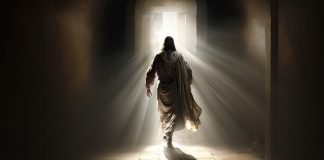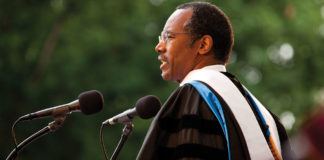What did Jesus believe about the meaning of life?
Between 2008 and 2021, 379 people died in selfie-related accidents. Made habitual by consumerism and social media, this cult of self-promotion is part of a nefarious cycle of narcissistic stimulation and a powerful indicator of our longing for worth and, by extension, meaning.
“A Time to Forgive” | Book Review
"A Time to Forgive" is the story of a pilgrimage through the void of pain and trauma. A father, devastated by the enormity of his loss, struggles to forgive his daughter's killer.
Church culture: the effect of the way we work together
It is not something that is written in any rules or printed on posters. However, you can see it in the way people greet each other and share their ideas, as well as in the sense of belonging they experience when they participate in church activities. The organisational culture of the church can be a source of unity, or conversely an invisible obstacle...
The career of a blind man
This life story challenges us to abandon clichés and stereotypes. Being blind does not mean being condemned to isolation and sadness. Disabilities can awaken hidden resources, particularly when we recognise the needs of a whole group of people. At the time of the interview, Senator Floyd Morris was President of the Senate of Jamaica.
Dr Carlton Byrd and the Church in work clothes
Dr Carlton Byrd is the director and main speaker of Breath of Life, a television broadcast dedicated to the urban colored population in the U.S. and the Pastor of the Oakwood University Church.
The need for control, between illusion and responsibility
As a child, I suffered because of the decisions the adults would make. At least, that's what I believed for a long time. It seemed unfair to me to not have veto power in the key moments that defined us as a family, and I was looking forward to the day when I would detach myself from the will of my elders.
Agents of God
Undoubtedly, the best known of all Bible verses is John 3:16, but even this does not sound the same in its different renderings. One of these is a personalised version, sometimes employed in church settings: “For God so loved [insert your name here] that He gave His one and only Son, so that if [insert your name here] believes in Him, [insert your...
Regaining lost free time | A parent’s route to leisure time
Sometimes, parents end up not having any free time during the day. Why is relaxation not easy for parents?
On the side of God and logic: An interview with Dr Ben Carson
Benjamin Solomon Carson is the famous American neurosurgeon who, in 1987, became the first to successfully separate twins conjoined at the head.
The end of the world, overlooked by philosophy
"Logic suffers from a great logical fallacy: it believes that reality itself is of a logical nature. If it encounters something that cannot be understood logically, it will claim that this something doesn't exist, but only appears to exist..." (Lucian Blaga, Horizons and Stages)
The role of Christian marriage counselling
Isaac and Rebecca, two biblical characters, had problems in their marriage. At first they struggled to fall pregnant. Then, when she eventually got pregnant, it was a difficult pregnancy, which affected them very much—so much so that they didn't know what to do. I suppose they had all sorts of discussions about the situation, but at some point the discomfort just became too...
The stories that restore our future
Among the words of Jesus, I was first fascinated by His surprising and enigmatic counter-questions, which generated real clashes among his tempters. In the face of the questions that were supposed to leave Him speechless, He always had a more comprehensive vision, from the perspective of which the traps were reduced to ridiculous, absurd obstacles.
Symptoms of a failing marriage
The prelude to a divorce often comprises highly destructive behaviours, which can prevent a couple from keeping their enthusiastic promise of staying together "for better or for worse until death do us part," says American psychologist Dr John Gottman.
The courage of freedom
“It was as if I were living in a fairy tale. And the most wonderful part was that I knew—hard as it may be to believe—that the story was true. None of the hardships of imprisonment touched me. The fear of the unknown no longer unsettled me, nor did the fact that, three days after my arrest, no one had yet called me...
In praise of the ordinary
What image comes to mind when you hear the word success? A blue-suited CEO? Internet billionaire Mark Zuckerberg? Perhaps Mother Teresa or Nelson Mandela? But if you’re like me, you probably didn’t think of a person living an unglamorous, day-to-day, ordinary life.


























